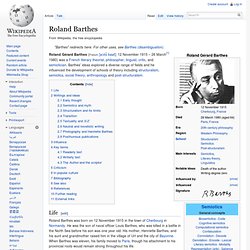

The Easiest and Most Affordable Way to Learn to Make High Quality Videos. Wales - Arts - Capture Wales. Jason ohler : Digital Storytelling - DOW of storytelling. Precedents, court rulings, perspectives What follows are what I find to be some of the more interesting court rulings on issues of fair use.

Unfortunately, I don't have time to follow each one, to see how each case evolves and how appeals turn out. So, be sure to conduct a follow up search to read about the latest developments. Apropos Appropriation, By Randy Kennedy, published: December 28, 2011, New York Times This is an interesting and informative article about the copyright conundrum, particularly as it relates to the world of art, mashups and "transformation" the art of digital collage development using other artists' materials.
"In March a federal district court judge in Manhattan ruled that Mr. "The decision, by Judge Deborah A. Read the entire article, Apropos Appropiation. Fair use court cases, legal opinions and precedents (1994) Campbell v. The Case of "Liberal Viewer" vs. The case of Liberal View vs. Read this short article about it, or simply Google "Asch Viacom YouTube. " Jason ohler : Digital Storytelling - DAOW of storytelling. Announcements Digital Storytelling in the Classroom: New Media Pathways to Literacy, Learning and Creativity.

Learn more about Jason's book about digital storytelling and new media narrative in education. Read reviews, peruse the table of contents, or purchase the book. Would you like your copy "signed at a distance? " Then contact us to receive a bookplate you can add to the inside cover. Orchestrating the Media Collage. Part IV - Assessing digital stories, new media narrative Much of this information comes from Chapter Four of Digital Storytelling in the Classroom: New Media Pathways to Literacy, Learning and Creativity. However, also included on this site are rubrics created by teachers and students I have worked with over the years. Remember - the most important aspect of a rubric is your ability to explain it to others, especially to yours students. Rubric considerations Before developing your rubric, first consider: Set clear goals.
Assessment traits Basic assessments Areas. Jason ohler : Digital Storytelling - DOW of storytelling. Announcements Digital Storytelling in the Classroom: New Media Pathways to Literacy, Learning and Creativity.

Learn more about Jason's book about digital storytelling and new media narrative in education. Read reviews, peruse the table of contents, or purchase the book. Would you like your copy "signed at a distance? " Then contact us to receive a bookplate you can add to the inside cover. Orchestrating the Media Collage. Jason Ohler : Education and Technology.
Focusing on storytelling The Digital Age is the Storytelling Age... we all get to tell our stories in our own way on the great stage of the Internet... A result of the Storytelling Age is that students come to school already immersed in the story culture through digital channels - as well as interpersonal communication at home and with friends. So, neither storytelling nor media-based storytelling is foreign to them. Yet I still find that students need help creating and delivering a story "that works" - that flows from beginning to end, that stays "on message," and that is memorable, and, hopefully, transformational for the the listener. This is particularly important when it comes to digital storytelling because students can easily become enamored of the technology at the expense of their stories. I also find that students need help understanding the ethical, social and media literacy aspects of media production.
New Media Narrative in the Schools Letters home to parents. Jason ohler : Digital Storytelling - DAOW of storytelling. THE DEATH OF THE AUTHOR - ROLAND BARTHES - FULL TEXT - TRANSLATED BY RICHARD HOWARD - EXPERIENTIALISM - ATHENAEUM LIBRARY OF PHILOSOPHY. Roland Barthes. Roland Gérard Barthes (French: [ʁɔlɑ̃ baʁt]; 12 November 1915 – 26 March[1] 1980) was a French literary theorist, philosopher, linguist, critic, and semiotician.

Barthes' ideas explored a diverse range of fields and he influenced the development of schools of theory including structuralism, semiotics, social theory, anthropology and post-structuralism. Life[edit] Roland Barthes was born on 12 November 1915 in the town of Cherbourg in Normandy. He was the son of naval officer Louis Barthes, who was killed in a battle in the North Sea before his son was one year old. His mother, Henriette Barthes, and his aunt and grandmother raised him in the village of Urt and the city of Bayonne. Barthes showed great promise as a student and spent the period from 1935 to 1939 at the Sorbonne, where he earned a license in classical letters. By the late 1960s, Barthes had established a reputation for himself. Writings and ideas[edit] Early thought[edit] Semiotics and myth[edit] Transition[edit]